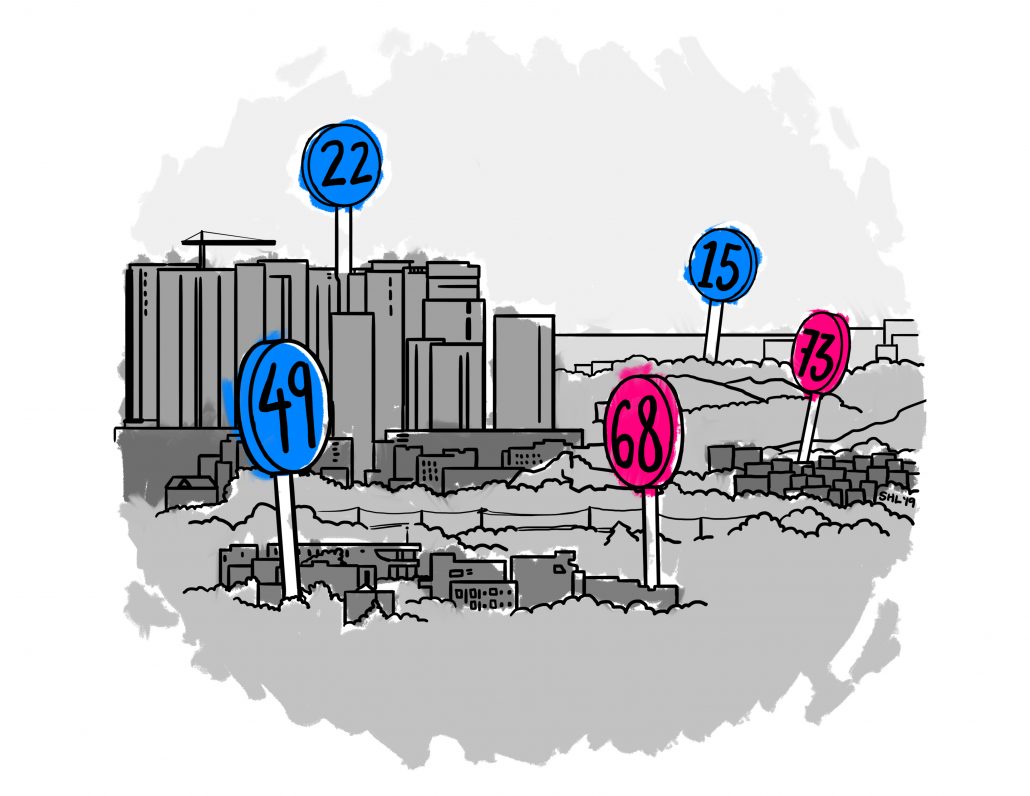OPINION: SAT adversity score is a step forward for USC’s admission process

The College Board recently announced plans to assign a new “adversity score” to students’ SAT scores, contextualizing their socioeconomic disparities. The score will be determined by 31 factors, including the crime rate and poverty level of a student’s high school and neighborhood.
While some argue that the score reduces students’ lived experience to mere data points, its implementation is actually a step in the right direction. USC, which remains at the center of the FBI’s college admissions bribery scheme investigation, must embrace the College Board’s adversity score to demonstrate its commitment to upholding fair admissions practices and prioritizing socioeconomic diversity.
In 2017, an investigation by The New York Times revealed just how poorly USC fares in indicators of socioeconomic diversity. According to The Times, 14% of all USC students come from the top 1% of the income scale, while just 4.9% of students come from the bottom 20%.
Some universities have overcome similar gaps in income and racial diversity by implementing the adversity score. At Yale, the score was implemented as part of a beta test by the College Board and nearly doubled the number of low-income and first-generation admitted students to 20%, according to The Wall Street Journal. At Florida State University, the score helped boost nonwhite enrollment by 5%.
USC is in desperate need of similar improvements in its admission processes. The current process at most major universities is inherently unfair, benefiting applicants who can afford and have access to college counseling services, standardized test preparation courses and better academic resources. The new adversity score would take these disparities into consideration, giving students from lower-income backgrounds a fairer chance against their more advantaged peers.
Furthermore, increasing the diversity of USC’s student population benefits the entire campus community. By enrolling students from a variety of backgrounds, the University can foster an inclusive environment where students can learn about cultures, ideas and perspectives outside of their own. It can show students who grew up wealthy the reality of an America where millions live in poverty. If the school’s student body fails to reflect society’s basic economic realities, then the University is failing to prepare its students to live in a socioeconomically diverse America.
Incorporating the adversity score would also be a significant step to show USC’s progress in reforming the flawed admission processes uncovered in the college admissions bribery case. By showing its commitment to admitting a diverse class of students, the University can begin to rectify its marred image and account for its mistakes.
Some argue that the adversity score dehumanizes applicants by oversimplifying the complexities of students’ lives into mere sociological data points. Such criticism is valid; the adversity score will never be able to capture the true scope of an individual student’s hardship. Significant forms of trauma, such as domestic violence, abuse and racism, are not factored into the score.
But implementing the adversity score doesn’t mean the University will forgo its holistic admission policy. Standardized testing is just one of many factors USC considers when reviewing applications, and the adversity score is one small part of it. The Common Application includes spaces for students to inform universities about any hardship they may have faced — admissions reviewers should continue to consider information in these spaces in tandem with the adversity score. It would be unfair to let this number alone define a student’s potential, just as it is unfair to let only a test score do the same.
In a recent interview with The Times, USC President-elect Carol Folt said she wants to ensure prospective students and parents aren’t skeptical of USC’s admissions.
“I think what we have to say is we’re doing everything we can to make sure that [the admissions] process is really fair,” Folt said.
If Folt’s words are to be taken seriously, and if the University is to regain the trust of the campus community, then USC must consider the College Board’s new adversity score in its admission process.

